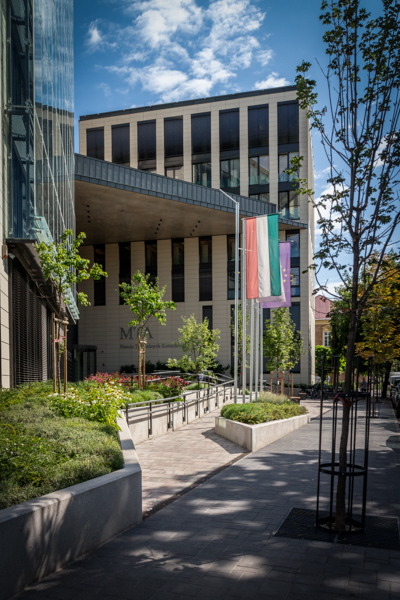Introduction to the Institute of Ethnology
 |
 |
 |
Founded in 1967 by the Hungarian Academy of Sciences, the Institute of Ethnology is Hungary’s most significant, leading scientific institution, which carries out outstanding contemporary, historical, and comparative studies in the fields of ethnography, folkloristics, historical anthropology, ethnology, anthropology, and ethno-ecology in Hungary, the region, and beyond Europe.
The Institute is currently part of the HUN-REN Research Centre for the Humanities.
Mission statement
Ethnography has a broad social base, and its applied benefits are evident in many areas. It has a prominent role in highlighting the values of locality, defining national and regional cultural heritage, shaping national culture and identity, understanding the local impact of globalization processes, promoting transcultural communication, giving voice to local actors, and creating a
knowledge base for revival movements and conservation efforts of the locality and its cultural and ecological diversity.
As a central institution in its discipline, the Institute of Ethnology has a wide network of contacts, cooperates with numerous research institutions, museums, and departments in Hungary and abroad, and initiates joint projects. Its researchers play a key role in the management of ethnography in Hungary, in the management of professional bodies, and in scientific assessment.
Its handbooks, book series, its annual yearbook, Ethno-Lore, and its scientific events provide a forum for the discussion and publication of new research findings. The Acta Ethnographica Hungarica, an English-language academic journal, is also edited by researchers of the Institute.
All of the above have enabled the Institute to serve as the cradle of the comprehensive works of this discipline ever since its establishment. This impressive scientific potential – indispensable for major professional endeavors – constitutes an internationally competitive research capacity among the leading foreign institutions of the discipline.
The main tasks of the Institute of Ethnology are the following:
- do research on the culture and society of the Hungarian people and peoples living in Hungary, monitor changes, explore their relations with the neighboring peoples; carry out socio-ethnological studies based on ethnological fieldwork in local communities that differ from each other in terms of geography and type, especially in topics such as cooperation and the challenges of sustainable development, present-day forms of rural life in different regions, the perspectives and social relevance of sociology in the 21st century;
- do historical research on Hungarian and non-Hungarian peasant culture forming part of the national cultural heritage, and the society and culture of local and regional communities; investigate the transformation of the agrarian and industrial society of the Carpathian Basin in a historical context; explore historical and visual sources in different topics of social history, material culture, lifestyle, devotional life and church history; research topics such as the periods and phenomena of Hungarian folk art and the contemporary design and art inspired by the folk art of the Carpathian Basin;
- collect, explore, systematize, publish and research the historical and contemporary phenomena of Hungarian folklore in an international context; interpret the characteristics of Hungarian folk poetry, folk religiousness, beliefs, customs, holidays and the transmission of folk traditions on the basis of folklore collections and 19th-, 20th- and 21st-century folklore text corpus;
- study non-European communities from a synchronic and historical perspective, with particular attention to the areas, societies, and traditions that have played a pivotal role in the ethnic formation of Hungarians; priorities are the study of the history of ethnology, the theoretical-methodological issues of cultural and social anthropology, and the dissemination of international anthropological literature in Hungary;
- edit and publish compendiums (Magyar Népköltészeti Lexikon [Encyclopaedia of Hungarian Folk Poetry]), an English-language academic journal (Acta Ethnographica Hungarica), and the yearbook of the Institute (Ethno-Lore) and its series;
- keep in touch with national and foreign ethnological institutions, organize conferences and debates, and join international research programs;
- undertake an active role in the propagation of science, juries, professional consultancy, organize professional exhibitions, book shows and popular science lectures, and provide an expert opinion in relation to the awarding of the Master of Folk Art and the Young Master of Folk Art titles as well as in that of the certificate of applied folk arts.
Departments, organizational structure
► Department of Social Anthropology
► Department of Historical Anthropology
► Department of Folklore Studies
► Department of Non-European Studies
► The Archive and the Library which serve as public collections.


